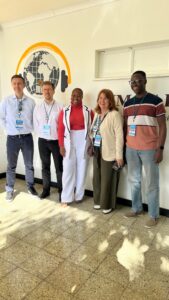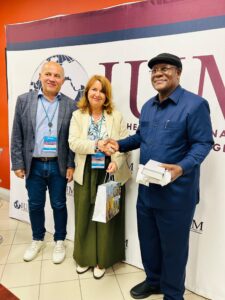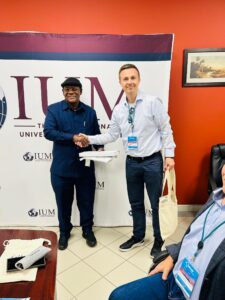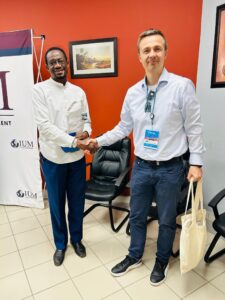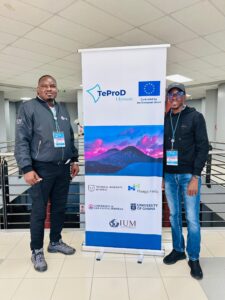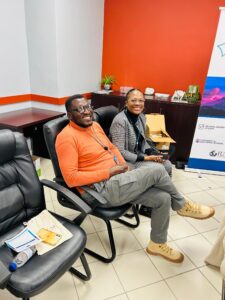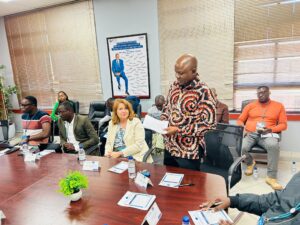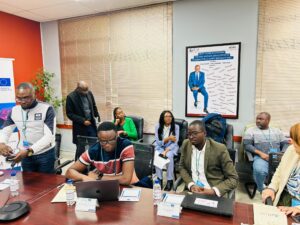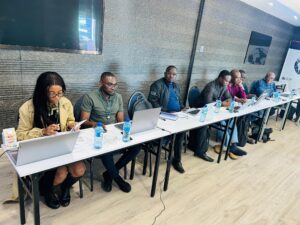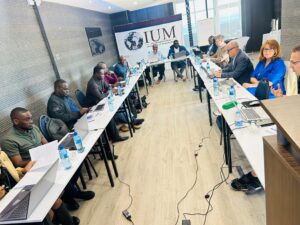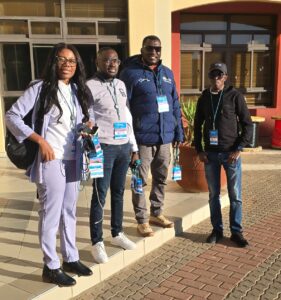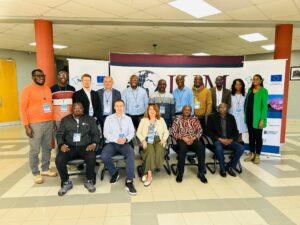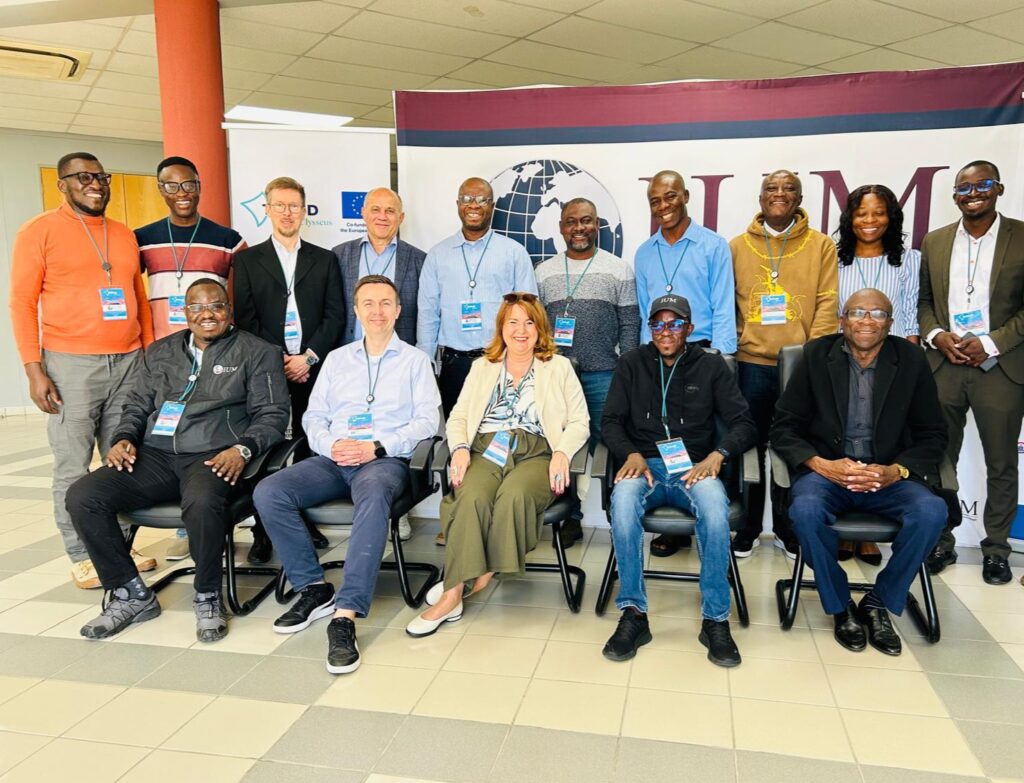
The International University of Management (IUM) conducted the second TeProD Project Meeting, from the 26 – 30 May 2025. The meeting was attended by all TeProD Project partners namely; the host, The International University of Management (IUM), University of Ghana (UG), University of Education, Winneba (UEW), Haaga-Helia University of Applied Sciences (HH UAS), and the Technical University of Kosice (TUKE). The project continues to work on modalities to prepare lecturers for twin-transition in higher education. Twin-transition is the simultaneous integration of technologies and sustainable approaches to teaching in Higher Education Institutions (HEIs). The hosting IUM TeProD Project members are; Dr. Elock Emvula Shikalepo, Dr. Silohenda Hileni Amuthenu, Mr. Timoteus Sheepo, Dr. Alpha Ndeunyema, Mr. Tomas Shivolo, and Dr. Sioni Iikela.
The project partners were warmly welcomed by the Vice-Chancellor of the International University of Management (IUM), Professor Osmund Damian Mwandemele. In his address, Professor Mwandemele highlighted the importance of higher education institutions in embracing both technological innovation and sustainable practices. He noted that integrating digital transformation with environmental responsibility is not only timely but a strategic move toward future-ready, socially conscious education systems. This dual pursuit enables HEIs to modernise their operations and reduce their ecological footprint simultaneously. By applying sustainability and digital literacy concurrently into HEIs curricula, HEIs will be able to graduate students who are competent in addressing emerging global challenges with innovative and sustainable solutions. TeProD commits to position itself as a driver that will lead HEIs to contribute significantly to the realisation of a digitally and sustainably resilient higher education space.
The meeting took place at two venues. The first venue was at IUM Main Campus, in Windhoek. The TeProD partners got an opportunity to meet with IUM management members, during which time Professor Osmund Damian Mwandemele, on behalf of IUM Management, pledged full support and commitment of IUM to the TeProD Project. Among other items at this meeting, Ms. Lee Ntinda, Head of the Centre for Improved Institutional Performance (CIIP), presented the mandate of the Centre, and expressed how CIIP is well positioned to assist the TeProD Project in implementing its activities such as meetings and workshops. In addition, other partners also expressed having similar Centres, which then provided fertile grounds for further collaborations and benchmarking between project partners. The team then made their way to IUM Radio for an interview, where they had the chance to talk about the project and what the twin transition entails. They shared what the project is all about, why it matters, and how it can make a difference for Sub-Saharan African countries. It was a great opportunity to connect with listeners, spread the word, and get more people interested and involved in the journey ahead.
The second venue, where the meeting continued until its conclusion, was Swakopmund, Namibia at the at Atlantic Villa Guest House. Some of the highlights of the second TeProD Project Meeting include an interactive session with about 300 students of the different participating institutions. The session was meant to explain the project aims to the students and how students can benefit from the project. One of the key benefits of the project to students is the opportunity for students to participate in a competition and win an opportunity of a fully-funded trip to either Finland or Slovakia for one week in order to be trained on digital transformation and green approaches. Another highlight was the Pedagogical co-creation workshop organized by IUM and facilitated by experts in the Technological Pedagogical Content Knowledge (TPACK) field from Namibian and South African universities.
The workshop focused on the role of TPACK model in facilitating Twin Transitions in higher education institutions and this workshop attracted various professionals across sub–Saharan Africa countries and beyond. In addition, there was a networking dinner organized by IUM for project partners to forge partnerships and promote further collaborations with each other. The project meeting was rounded off with an excursion, which provided an opportunity for the visiting project partners to visit and explore the beautiful places, landscapes and scenery that Namibia has to offer. Among other places visited, were the Cape Cross, the University of Namibia – Sam Nujoma Campus, and Dune 7.
